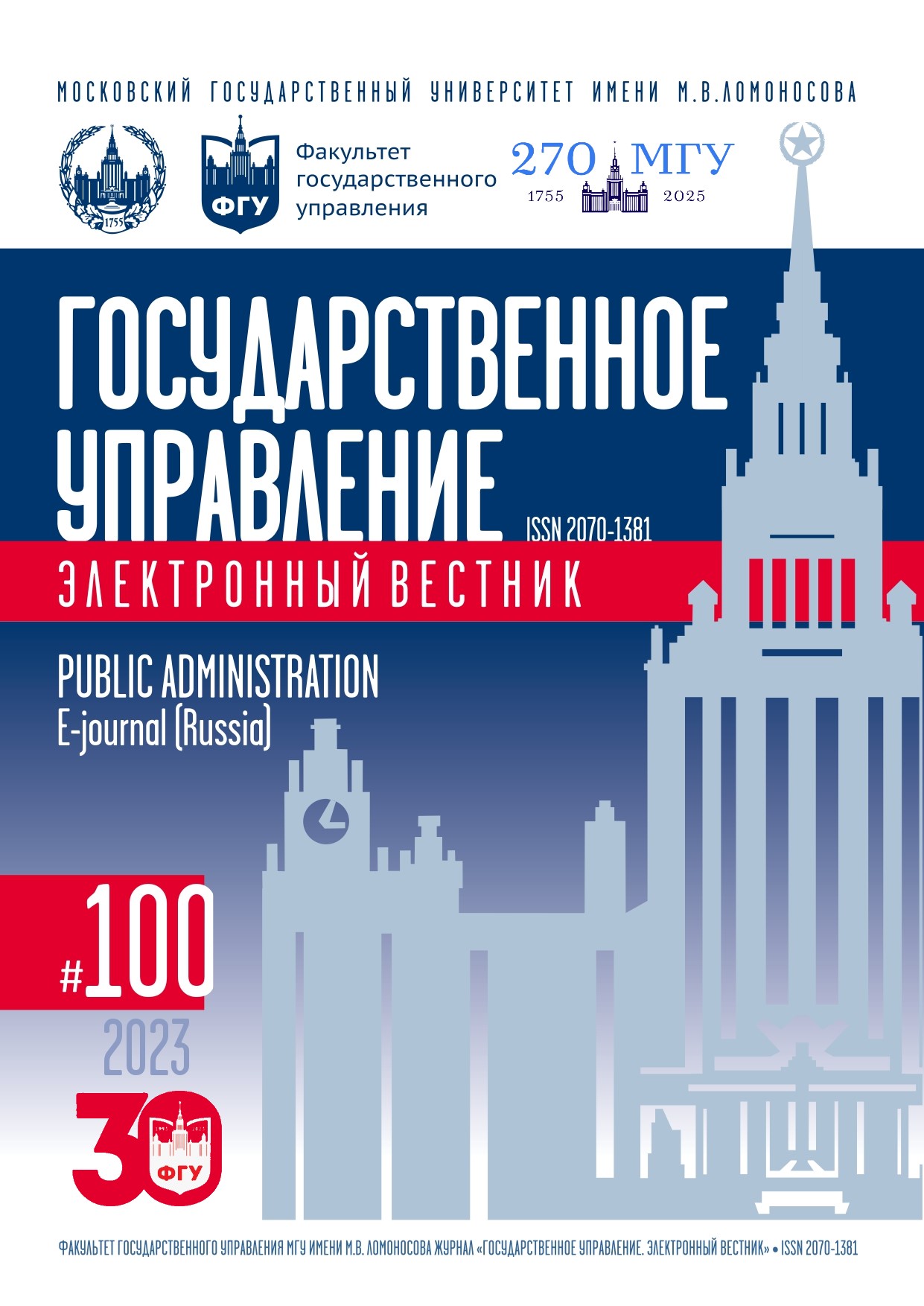Promoting Employment of the Disabled as a Reserve for Increasing Demographic Dividend in Russia
Keywords:
Age structure, demographic dividend, employment of the disabled, Russia, economic growthAbstract
Increasing the competitiveness of the disabled in the labor market is an important task not only in terms of ensuring social justice, equality of opportunity and reducing discrimination, but also in terms of stimulating economic growth in Russia through the channel of demographic dividend. With the continuing population aging, Russia will again have to experience the decline in the share of the working-age population in the medium term. The increase in employment of the disabled is one of the ways to raise the demographic dividend in Russia, including partially offsetting its negative impact during periods of a declining share of the working-age population. Employment among people with disabilities in Russia remains low and lags behind the OECD average. The purpose of this paper is to assess the possible impact of an increase in employment of the disabled in Russia on the size of the country’s demographic dividend in 2018–2022 using official Rosstat data. The article shows that increasing the number of working people with disabilities is an important reserve for boosting the demographic dividend in Russia.
References
Акиндинова Н.В., Чекина К.С., Яркин А.М. Экономический рост в России с учетом демографических изменений и вклада человеческого капитала // Экономический журнал Высшей школы экономики. 2017. Т. 21. № 4. С. 533–561.
Демьянова А.В., Лукьянова А.Л. Низкий уровень занятости инвалидов в России–результат дискриминации? // Экономический журнал Высшей школы экономики. 2017. Т. 21. № 3. С. 385–411.
Зайцева Т.В., Халуторных О.Н. Трудоустройство инвалидов в РФ, или Что делать с равными правами человека на труд? // Государственное управление. Электронный вестник. 2018. № 71. С. 117–140. DOI: 10.24411/2070-1381-2018-00105
Казбекова З.Г., Калабихина И. Е. Прогноз динамики демографического дивиденда в России с учетом пенсионной реформы и пандемии // Научные исследования экономического факультета. Электронный журнал. 2023. Т. 15. № 3. С. 68-82. DOI: 10.38050/2078-3809-2023-15-3-68-82
Калабихина И.Е., Казбекова З.Г. Влияние первого демографического дивиденда на экономический рост с учетом человеческого капитала // Журнал Новой экономической ассоциации. 2022. № 3(55). С. 81–100. DOI: 10.31737/2221-2264-2022-55-3-5
Колыбашкина Н., Сухова А., Устинова М., Демьянова А., Шубина Д. Анализ барьеров и возможностей для участия людей с инвалидностью на рынке труда в Российской Федерации. Washington: World Bank Group, 2021.
Кучмаева О.В. Занятость инвалидов в регионах России: состояние, дифференциация, факторы // Статистика и экономика. 2020. Т. 17. № 5. С. 27–37. DOI: 10.21686/2500-3925-2020-5-27-37
Нацун Л.Н. Результативность трудовой реабилитации инвалидов в России // Вестник Нижегородского университета им. НИ Лобачевского. Серия: Социальные науки. 2019. Т. 3. № 55. С. 149–160.
Саломатин Ю.В., Москвина М.В. Система управления по содействию занятости инвалидов в России // Бизнес. Общество. Власть. 2021. № 41. С. 135–157.
Юмагузин В.В., Винник М.В. Прогноз численности и демографической нагрузки населения России до 2100 года // Проблемы прогнозирования. 2022. № 4(193). С. 98–111. DOI: 10.47711/0868-6351-193-98-111
Bloom D., Canning D., Sevilla J. The Demographic Dividend: A New Perspective on the Economic Consequences of Population Change. Santa Monica: RAND Corporation, 2003.
Bloom D., Williamson J.G. Demographic Transitions and Economic Miracles in Emerging Asia // The World Bank Economic Review. 1998. Vol. 12. Is. 3. P. 419–455. DOI: 10.1093/wber/12.3.419
Mason A. Demographic Transition and Demographic Dividends in Developed and Developing Countries // United Nations Expert Group Meeting on Social and Economic Implications of Changing Population Age Structures (Mexico City, 31 August – 2 September 2005). New York: United Nations, 2007. P. 81–101.
Mason A., Lee R. Reform and Support Systems for the Elderly in Developing Countries: Capturing the Second Demographic Dividend // Genus. 2006. Vol. 62. Is. 2. P. 11–35.
Mody M.A., Aiyar M.S. The Demographic Dividend: Evidence from the Indian States // IMF Working Paper. 2011. Vol. 2011. Is. 038. DOI: 10.5089/9781455217885.001
Downloads
Published
Similar Articles
- Anna V. Markeeva, Aleksey V. Sinyakov, News Content Impact on Intergenerational Interaction in Russia , Public Administration. E-journal (Russia): No. 87 (2021)
- Marianna V. Kudina, Azret Sh. Kasymov, Venture Capital and Creative Labour: Dilemma of Economic Growth Model Selection , Public Administration. E-journal (Russia): No. 85 (2021)
- Igor N. Molchanov, Natalia P. Molchanova, State Financial Policy of Russia: Features of Development and Implementation in New Geopolitical Conditions , Public Administration. E-journal (Russia): No. 100 (2023)
- Alexander O. Naumov, Marina V. Belousova, In Search of the Third Way between State and Market: State Entrepreneurship in Italy in the Middle of the 19 th Century–the End of the 20 th Century , Public Administration. E-journal (Russia): No. 94 (2022)
- Sergey A. Sobolev, Lidia S. Leontieva, Problems and Prospects for the Development of Russian Urban Agglomerations , Public Administration. E-journal (Russia): No. 92 (2022)
- Igor N. Molchanov, Natalia P. Molchanova, Reproduction of Human Potential in Changing Conditions of Higher Education , Public Administration. E-journal (Russia): No. 92 (2022)
- Irina A. Denisova, Irina E. Kalabikhina, Polina O. Kuznetsova, The Influence of the Regional Maternity Capital Program on Fertility (Case of Yamal-Nenets Autonomous Okrug) , Public Administration. E-journal (Russia): No. 105 (2024)
- Galina V. Astratova, Chigozirim N. Onwusiribe, Geopolitical Pressures and State Policy Responses in Improving the Agro-Industrial Complex for Russian Food Security and the Economic Growth of the Agro-Industrial Complex , Public Administration. E-journal (Russia): No. 112 (2025)
- Vitaly A. Umnov, Ekaterina B. Makarova, The Concept of “Economic Entity” and Its Role in the Development of Russian Industry , Public Administration. E-journal (Russia): No. 86 (2021)
- Elena V. Selezneva, Alina V. Trifonova, Elena G. Chirkovskaya, Sex and Age Peculiarities in the Structure of Management Role , Public Administration. E-journal (Russia): No. 85 (2021)
You may also start an advanced similarity search for this article.




